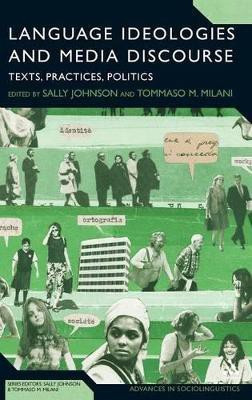Language Ideologies and Media Discourse(English, Hardcover, unknown)
Quick Overview
Product Price Comparison
This book presents an exploration of the relationship between language ideologies and media discourse, together with the methods and techniques required for the analysis of this relationship. The study of language ideologies has become a key theme in sociolinguistics over the past decade. It is the study of the relationship between representations of language, on the one hand, and broader aesthetic, economic, moral and political concerns, on the other. Research into the particular role played by media discourse in the construction, reproduction and contestation of such ideologies has been widely scattered - this book brings together this emerging field. It considers how, in an era of global communication technologies, the media - by which we understand the press, radio, television, cinema, the internet and multimodal gaming - help to disseminate preferred uses of, and ideas about, language. The book is tightly focussed on the relationship between language ideologies and media discourse, together with the methods and techniques required for the analysis of that relationship.It also places emphasis on television and new-media texts, incorporating and expanding upon recent theoretical insights into visual communication and multimodal discourse analysis. International in scope, this book will also be of interest to students from a wide range of fields including linguistics (particularly sociolinguistics and linguistic anthropology), modern languages, education, media studies, communication studies and cultural theory. "The Advances in Sociolinguistics" series seeks to provide a snapshot of the current diversity of the field of sociolinguistics and the blurring of the boundaries between sociolinguistics and other domains of study concerned with the role of language in society.


